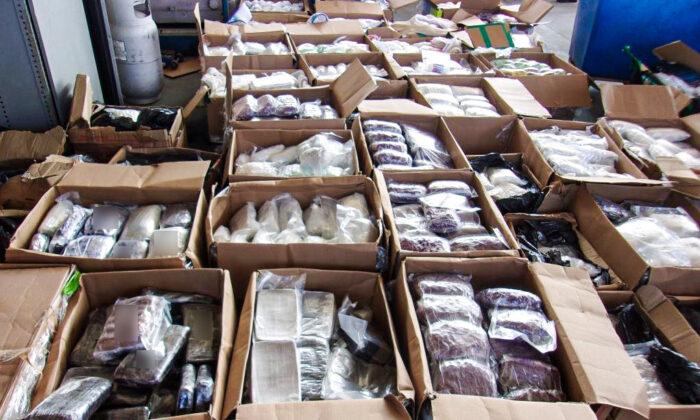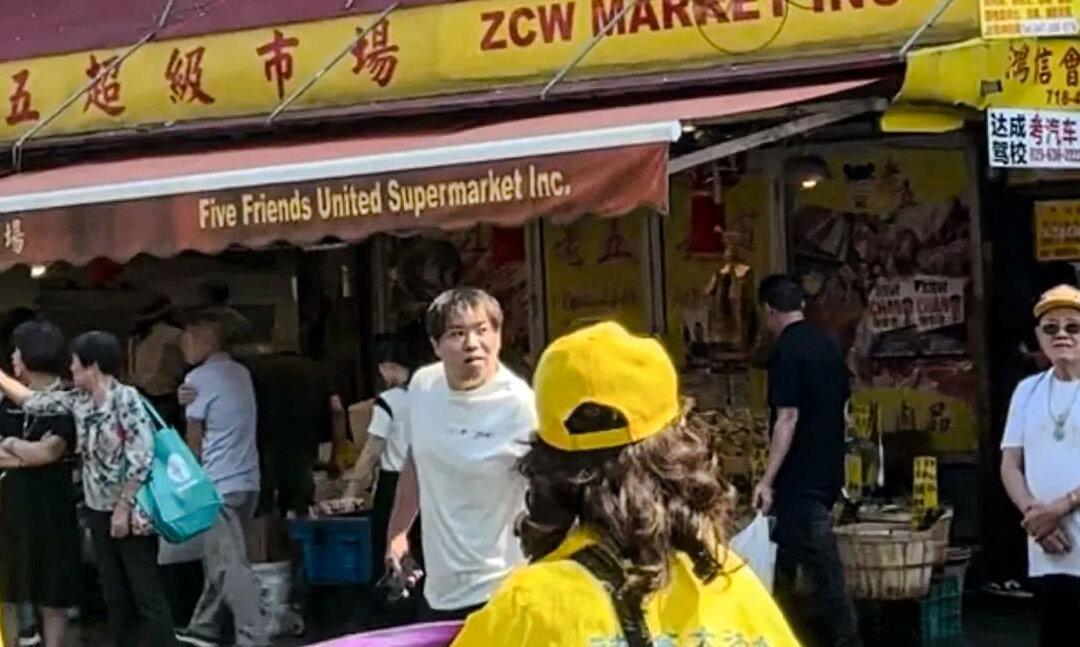The U.S. State Department is offering as much as $35 million for information that could lead to the arrests of seven drug dealers from China and Mexico, in an effort to curb fentanyl and other illicit drugs from flooding into the United States.
The announcement came right after President Joe Biden on Dec. 15 signed two new executive orders, declaring international drug trafficking a national emergency and establishing a U.S. council on transnational organized crime to unite six agencies to counter the illicit drug trade. The department will award up to $5 million for information on each of the seven drug traffickers.
One of the seven individuals was identified as Chinese national Yip Chuen Fat, whom the Justice Department (DOJ) has recognized as “one of the world’s largest alleged anabolic steroid producers.”
Prosecutors announced federal charges against Yip on Dec. 14. The 68-year-old, believed to be from the Chinese city of Wuhan, was slapped with five drug charges in 2018, including manufacturing anabolic steroids and fentanyl precursors for export to the United States, according to the DOJ.
Court documents identified him as the owner of a chemical manufacturing company called Yuancheng (YC) Group, which is allegedly responsible for producing and distributing around $280 million worth of anabolic steroids from mainland China and Hong Kong. About one-fifth of the amount was shipped to the United States over a five-year period, prosecutors said.
The YC Group allegedly shipped the contraband to all 50 U.S. states through cargo vessels and commercial air carriers such as the U.S. Postal Service, concealing shipments in food and other product packagings.
In November, prosecutors obtained a warrant to seize more than 49.1 bitcoin, worth $2.3 million, from a crypto wallet that traced back to Yip. He allegedly uses virtual currencies, including Bitcoin, to conduct his business.
More than 100,000 Americans died of drug overdoses during the 12-month period that ended in April, a jump of 28.5 percent from the year-earlier period, according to data released by the U.S. Centers for Disease Control and Prevention last month. Synthetic opioids, primarily fentanyl, a drug that’s up to 100 times more potent than morphine, accounted for nearly two-thirds of the total.
To circumvent regulations, Chinese traffickers have increasingly taken to exporting precursors to Mexican cartels, who produce the drug and smuggle it across the border, a tactic that Yip’s company allegedly has adopted.
The YC Group had once agreed to a scheme to ship 24 kilograms of 4-ANPP, a precursor to fentanyl, to the United States from China, which would then be smuggled to Mexico to make fentanyl and brought back into the United States.

The Drug Enforcement Administration (DEA) has listed Yip as one of its top 10 most-wanted fugitives. Yip’s alleged criminal activities “have caught up with him,” DEA Special Agent in Charge Eduardo Chávez said.
The State Department also offered rewards for information on four Mexican nationals: Ovidio Guzmán López, Ivan Archivaldo Guzmán Salazar, Jesus Alfredo Guzmán Salazar, and Joaquín Guzmán López. All are sons of the imprisoned drug lord Joaquin “El Chapo” Guzman, and are ranking members of the Sinaloa Cartel, one of the largest drug trafficking groups in Mexico smuggling illicit drugs by the tons into the United States. The four took over leadership roles on the cartel after their father’s arrest in 2014.
The Treasury Department on Dec. 15 also sanctioned Wuhan Yuancheng Gongchuang Technology Co., another company allegedly linked to Yip, along with 24 individuals and entities from four countries contributing to the global proliferation of illicit drugs.
The sanction also applies to Shanghai Fast-Fine Chemicals Co., a Chinese chemical transportation company that has exported precursor chemicals—often with false labeling—to Mexican drug cartels to make fentanyl for U.S. consumption, the department said.
Two other Chinese entities under the sanction are Hebei Huanhao Biotechnology Co., Ltd. and Hebei Atun Trading Co., Ltd., both allegedly involved in supplying fentanyl precursor chemicals.
The Treasury sanction freezes U.S. assets owned by the targeted entities or individuals. It also blocks anyone on U.S. soil from transacting with the sanctioned bodies.





